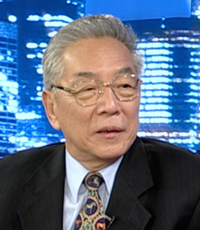By Wang Yusheng
|

|
|
Wang Yusheng was a former director of the Information Department of the Foreign Ministry and is now a researcher at the Development Research Center of the State Council. |
Over the past few years, the complexity of the international situation has been coupled with three powerful factors that mark profound changes in international affairs.
Firstly, to a great extent the emergence of developing countries has turned the wheel of history. Their resurgence has changed the world's political map as a new force, making it hard for America to maintain hegemony.
Some experts say the era of America is past. I do not think that this point holds. The U.S. is still the most powerful nation in the world, although it will be impossible for it to maintain this lead through the next five decades.
Secondly, the central preoccupation for developing countries in the new era has shifted from battling against capitalism to pursuing peaceful development.
What the developing countries need to do now is to step up the development of a multipolar world, advocate democracy in international relationships and diversity of development approaches, urge greater political autonomy, and bring change to the unfair and unreasonable global economic order.
Thirdly, China has become a significant factor in changing the trend of international relationships and issues. America maintains a watching brief on China that is expected to be a defining feature of a number of its strategies, and still looks for opportunities to outmaneuver China.
As a tactic to limit the rise of China, which it fears will menace its international hegemony, America is keen on building an alliance of democratic nations. However, China's booming economy has split the alliance of the western countries, which find themselves torn between time-honored values and practical interests – their values are supposed to be inviolable principles, while China's huge market is an enticing temptation that dangles in front of them.
When it comes to the Beijing Olympic Games, we are glad that it was great success. Yet it is very dangerous for us to merely view it as a source of national pride. Further challenges await us still. We should be confident in ourselves and rally our efforts.
We should prepare for danger in times of safety, and insist on a defensive rather than an offensive strategy in dealing with foreign relations.
We should avoid projecting too much of an image that China is a rising power in the world. I think it is better not to indulge in an excess of propaganda. In my opinion, harmony rather than hatred and confrontation is what we need in developing foreign policy.
We should emphasize that diplomatic principle that pursues harmony and cooperation, abandoning cold war ideology and downplaying the line between capitalism and socialism.
We will definitely encounter a great many difficulties on the way ahead, including polemic and lecturing from the outside world. We need to keep us cool and move forwards.
(China.org.cn translated by He Shan, December 10, 2008)